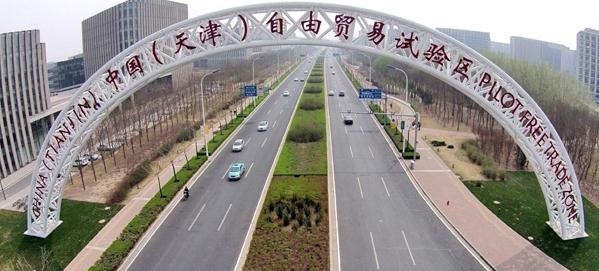China's FTZs in Tianjin, Fujian, Guangdong, Shanghai pilot reforms

CHINA's four pilot free trade zones located in Tianjin, Fujian and Guangdong province on the east coast, as well as Shanghai, are spearheading structural reforms to make it easier to start businesses and grant foreign firms more access to the service sector.
These cities and provinces have taken on the role of piloting new reforms in their free trade zones, where local authorities have greater discretion to manage business activities and cross-border capital flow, reported Xinhua.
Loosened controls on capital and widened access to sectors that remain closed or restricted for foreign firms elsewhere have led to a surge in new business registrations and cross-border transactions in the zones.
A survey published in September by the American Chamber of Commerce in Shanghai found that 42 per cent of American firms are happy with measures to facilitate trade in the Shanghai free trade zone, and plan to gain a foothold in the free trade zones in Tianjin, Fujian and Guangdong.
Tianjin plans to use its free trade zone to serve a greater region in northern China that includes Beijing and Hebei province. Tianjin has performed well in auto imports and financial leasing compared to the rest of the country.
The financial leasing arm of China's biggest state lender ICBC performed the country's first offshore leasing in Tianjin when it bought an A320 aircraft from Airbus and leased it to Himalaya Airlines in Nepal.
Guangdong has been leveraging its proximity to Hong Kong and Macao to encourage more cross-border financial transactions. A total of 13 securities firms and asset managers from Hong Kong have been allowed to invest up to US$18.66 billion combined in China's domestic capital markets.
Banks in the free trade zone offer more products for companies looking for merger and acquisition opportunities overseas to hedge against currency exchange risks.
The free trade zone in Fujian has been piloting measures to ease economic exchanges with Taiwan, and has granted speedy customs clearance for 120 Taiwanese products. This has made it possible for fresh fruit picked in the morning in Taiwan to hit the market in Fujian in the afternoon.
Streamlined measures for clearing Taiwanese products for the Chinese mainland have been approved by the General Administration of Customs for use in the other three zones.
Meanwhile, multinational corporations are increasingly using the Shanghai free trade zone to introduce new services to consumers in China. Apple and Uber have both registered companies in the zone as a launch pad for their new mobile payment and taxi-hailing services in China.
Shanghai also launched a yuan-denominated gold benchmark this week to offer global investors an alternative to the London and New York gold fixing. Zone authorities are also drafting regulations to allow Chinese households to invest in offshore capital markets.
HEADLINES
- Do shipping markets want Biden or Trump for the win?
- All 18 crew safe after fire on Japanese-owned tanker off Singapore
- Singapore launching $44m co-investment initiative for maritime tech start-ups
- Cosco debuts Global Shipping Industry Chain Cooperation Initiative
- US warns of more shipping sanctions
- China continues seaport consolidation as Dalian offer goes unconditional